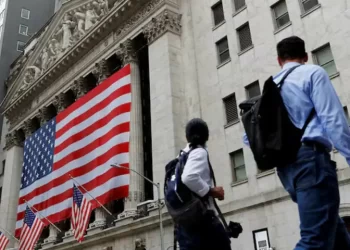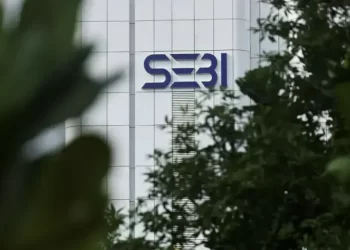BAGHDAD (news agencies) — A dozen masked men jump out of two SUVs and a white pickup and storm a KFC in Baghdad, smashing everything in sight before fleeing the scene. A few days earlier, similar violence played out at Lee’s Famous Recipe Chicken and Chili House — all American brands popular in the Iraqi capital.
Though no one was seriously hurt, the recent attacks — apparently orchestrated by supporters of Iran-backed, anti-American militias in Iraq — reflect surging anger against the United States, Israel’s top ally, over the war in Gaza.
Iraqi governments have for years walked a delicate line between Washington and Tehran, but the eight-month war in Gaza has critically upped the stakes.
The conflict erupted after the militant Hamas group stormed into southern Israel on Oct. 7, killing some 1,200 people — mostly civilians — and taking 250 hostage. Israel’s subsequent offensives in Gaza have killed more than 36,000 Palestinians in the territory, according to the Health Ministry there.
Days after the war broke out, a coalition of Iran-backed militias dubbed the Islamic Resistance in Iraq launched dozens of attacks on bases housing U.S. troops in Iraq and eastern Syria.
Those attacks stopped in February — but only after a series of retaliatory U.S. strikes following a drone hit on a base in Jordan that killed three American soldiers.
The attacks on U.S.-linked businesses and brands in Iraq in late May and earlier this week represent a change in tactics intended to maximize anti-U.S. sentiment over Washington’s support for Israel.
The KFC attack unfolded like a robbery — except the attackers weren’t after the money.
Security camera footage shows the masked men bursting into the fast food restaurant as horrified workers and customers escape through a back exit. The men then proceed to smash windows and LED screens, break chairs, tables, kitchen appliances — and whatever else they could find.
Minutes later, security forces arrive at the scene and fire warning shots as perpetrators run back into their cars and speed away.
In other incidents, a sound bomb was hurled outside the Caterpillar company store, rattling the neighborhood and leaving a small pothole in the street.
Some of the displays of anti-U.S. sentiment have been less volatile.
Protesters carrying Palestinian and Iraqi flags last week marched up to the PepsiCo offices in Baghdad, chanting “No to agents” and “No to Israel.” Another protest took place outside the offices of Procter & Gamble.
Iraqi forces armed with assault rifles and backed by armored vehicles with mounted machine guns now guard the targeted premises and franchises.
Two officials from Iran-backed militias in Iraq confirmed to media that the attackers were their supporters, and that their goal is to promote a boycott of American brands and deter their presence in the country.
It’s also an attempt to bolster the militias’ image, the officials said, speaking on condition of anonymity in line with their groups’ regulations.
Abu Ali al-Askari, spokesperson for the powerful Iran-backed Kataib Hezbollah paramilitary group, on Monday urged supporters to get rid of Israel’s “espionage affiliates covered in civilian garb” — a reference to businesses and organizations perceived as linked to the U.S. and Israel.
Essa Ahmad, who organized over 30 protests in support of Gaza, said during a recent Baghdad rally that he and other youth activists want Iraqis to boycott products “that support Israel,” though he says they don’t condone violence.
Firebrand Shiite cleric Muqtada al-Sadr — a rival of the Iran-backed factions who, though retired from politics, is still widely popular among many Iraqi Shiites — has called for Iraq to expel the U.S. ambassador.
Political analyst Ihsan al-Shammari sees the targeting of U.S. and Western brands as playing into the decades-old rivalry between Tehran and Washington.









